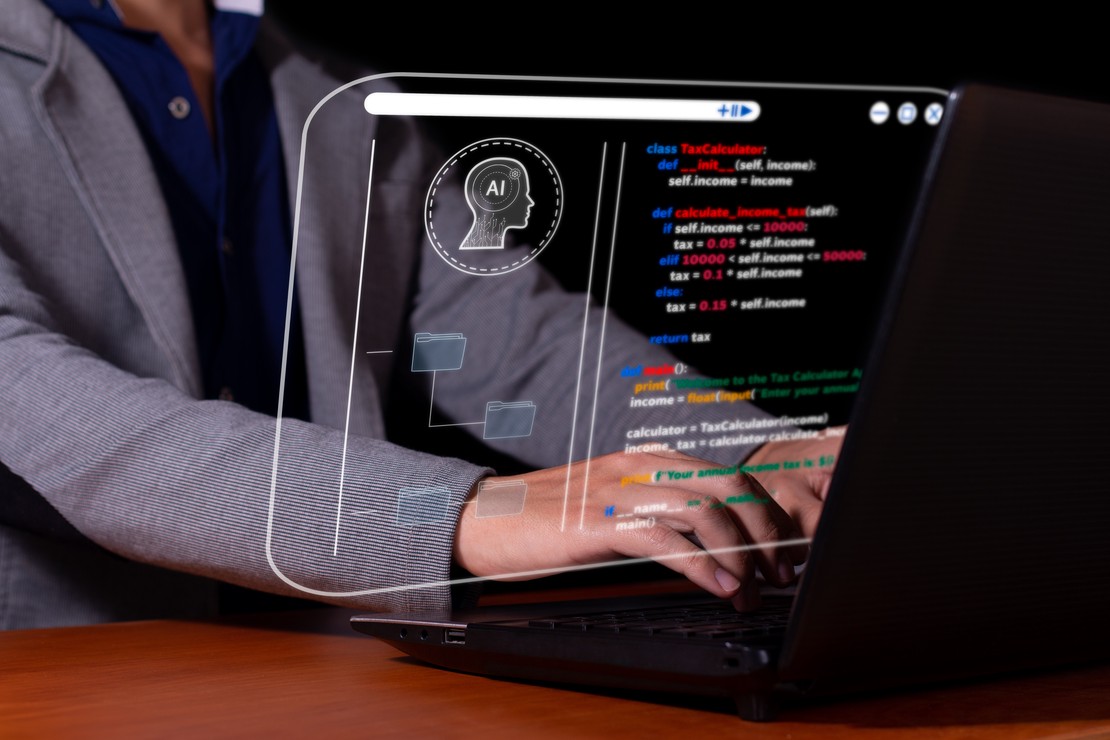Collecting Online Evidence: Why Screenshots Will Sink Your Case (And How Aleph Archives Solves the Problem)
In today’s digital-first world, online evidence has become central to litigation across virtually every industry. Social media posts, website content, digital communications, and other online materials are now routinely presented as evidence in court cases ranging from employment disputes to intellectual property violations.
Yet many legal professionals continue to rely on screenshots as their primary method for preserving online evidence—a practice that increasingly puts their cases at risk of dismissal and their organizations at risk of adverse judgments.
The Growing Problem with Screenshots as Evidence
While screenshots might seem like a quick and easy solution for capturing online content, they present significant challenges when introduced as evidence:
1. Screenshots Lack Authentication
Modern courts increasingly require digital evidence to be properly authenticated. A screenshot alone fails to answer critical questions that opposing counsel will immediately raise:
- When was this content actually captured?
- Who captured it?
- Has the content been altered since capture?
- Is this a complete representation of the original content?
Without satisfactory answers to these questions, courts are increasingly likely to rule screenshots inadmissible or give them minimal evidentiary weight.
2. Screenshots Miss Critical Metadata
Screenshots capture only what’s visible on screen, missing the wealth of metadata that often proves crucial to a case:
- Creation and modification timestamps
- Author information
- Location data
- Underlying code
- User interaction history
This invisible but legally significant information is completely lost when using screenshots, potentially undermining your case’s foundation.
3. Screenshots Fail to Capture Interactive Elements
Modern websites and social media platforms are highly dynamic, containing interactive elements that screenshots simply cannot preserve:
- Embedded videos
- Comment threads
- Interactive maps
- Pop-up content
- Form submissions
- Dynamic navigation
When these elements contain relevant evidence, screenshots leave you with incomplete documentation that may fail to tell the complete story.
4. Screenshots Are Easily Manipulated
Standard screenshots offer no built-in verification mechanisms. With widely available editing tools, anyone can manipulate screenshot content without leaving obvious traces. Without forensic authentication, opposing counsel can easily challenge the integrity of screenshot evidence.
Real-World Consequences: When Screenshots Fail in Court
The consequences of relying on screenshots can be severe. Consider these actual case outcomes:
In Moroccanoil v. Marc Anthony Cosmetics (2023), the plaintiff’s trademark infringement claims were significantly undermined when the court questioned the authenticity of screenshot evidence showing alleged infringement on the defendant’s website. The court noted the absence of proper metadata and authentication methods, resulting in a much smaller settlement than initially sought.
During a 2022 employment discrimination case, evidence of inappropriate social media comments was deemed inadmissible because screenshots failed to conclusively establish when the content was posted or whether it had been altered.
In a recent contract dispute, crucial evidence of terms displayed on a company’s website was rejected because screenshots couldn’t demonstrate what specific content was visible to users on the relevant date.
The Aleph Archives Solution: Forensically Sound Digital Evidence
Aleph Archives has developed a comprehensive solution that addresses the fundamental weaknesses of screenshots, providing legal professionals with court-admissible, forensically sound digital evidence.
1. Tamper-Evident Preservation
Unlike competitors like PageFreezer who offer basic digital signatures, Aleph Archives’ proprietary Blockchain Verification System™ creates an immutable chain of custody for all preserved digital content. Every capture includes:
- Advanced cryptographic hashing
- Timestamping from multiple independent sources
- Detailed audit logs of the capture process
- Immutable blockchain registration
This comprehensive approach ensures that any attempt to alter the evidence would be immediately detectable, providing the highest level of authenticity verification available in the industry.
2. Complete Metadata Preservation
While screenshots capture only what’s visible, Aleph Archives preserves the complete digital record, including:
- Full HTML/CSS/JavaScript code
- All HTTP header information
- Complete user interaction data
- Platform-specific metadata
- Server response information
- Embedded media source details
This comprehensive metadata preservation provides crucial context that often proves decisive in litigation.
3. Dynamic Content Capture
Modern digital evidence often includes interactive elements that screenshots cannot preserve. Aleph Archives’ Dynamic Capture Technology™ preserves the complete functional experience:
- Interactive page elements function as they did originally
- Video and audio content remains playable
- Comment threads and social interactions are preserved in full
- Navigation systems maintain functionality
- Pop-ups and conditional content are properly documented
This full-fidelity preservation ensures that no relevant evidence is lost due to technical limitations.
4. Advanced Chain of Custody
Every piece of evidence collected through Aleph Archives includes a comprehensive chain of custody documentation:
- Who initiated the capture
- Precise timestamp (synchronized with atomic clocks)
- Complete system information
- Verification signatures from multiple authorities
- Sequential hash verification
This unbreakable chain of custody addresses the “who, what, when, and how” questions that courts require for digital evidence authentication.
How Aleph Archives Outperforms Competitors
While several vendors offer web archiving solutions, Aleph Archives has developed the industry’s most legally defensible platform for online evidence collection:
| Feature | Aleph Archives | PageFreezer | Hanzo | MirrorWeb |
|---|---|---|---|---|
| Blockchain Verification | ✓ Multi-chain | ✗ Basic hash | ✗ Basic hash | ✗ No blockchain |
| Legal Export Formats | ✓ 12+ formats | ✓ Limited | ✓ Limited | ✗ Basic PDF only |
| Affidavit Generation | ✓ Automated | ✓ Manual | ✗ No | ✗ No |
| Metadata Depth | ✓ Complete | ✓ Partial | ✓ Partial | ✗ Minimal |
| Dynamic Content | ✓ Full functionality | ✓ Limited | ✓ Partial | ✗ Static only |
| Expert Testimony | ✓ Available | ✗ No | ✓ Limited | ✗ No |
| Court Admissibility | ✓ 100+ precedents | ✓ Limited | ? Unproven | ? Unproven |
Admissibility Framework: How Aleph Archives Meets Court Standards
Aleph Archives’ evidence collection platform was designed from the ground up to meet the most stringent admissibility requirements, including:
Federal Rules of Evidence Compliance
Our system specifically addresses the authentication requirements of FRE 901 and 902(13)-(14) by:
- Providing certification from a qualified person who has inspected the system
- Maintaining comprehensive records establishing a systematic process
- Producing evidence showing no alterations during the preservation process
- Automatically documenting all technical processes
Chain of Custody Documentation
Every capture includes comprehensive documentation that answers the essential questions courts require:
- Who collected the evidence
- When it was collected (with verified timestamps)
- How it was collected (detailed technical methodology)
- Where it was stored
- Who had access to it
- What security measures protected it
Expert Authentication Support
Unlike competitors who leave you to defend the evidence alone, Aleph Archives provides:
- Affidavits explaining the technical collection process
- Expert testimony when required
- Technical documentation suitable for court submission
- Plain-language explanations for judges and juries
Real-World Applications: How Organizations Use Aleph Archives
Organizations across sectors rely on Aleph Archives’ evidence collection capabilities:
Legal Departments
Corporate legal teams use Aleph Archives to:
- Document competitor websites for IP monitoring
- Preserve evidence of online defamation
- Capture terms of service and policy changes
- Document online transactions and user experiences
Human Resources
HR professionals leverage our platform to:
- Document employee misconduct on social media
- Preserve evidence for workplace investigations
- Capture online harassment or discrimination
- Document compliance with posting requirements
Compliance Teams
Regulatory compliance professionals utilize Aleph Archives to:
- Document regulatory disclosures
- Preserve evidence of compliance with online requirements
- Monitor third-party representations about their organization
- Document transactional correspondence
Insurance and Claims
Insurance professionals rely on our solution to:
- Document social media evidence in claims investigations
- Preserve online statements relevant to coverage disputes
- Capture evidence for fraud investigations
- Document digital communications related to claims
Case Study: How Aleph Archives Preserved Critical Evidence
When a Fortune 500 company faced a high-stakes intellectual property dispute over allegedly copied website content, their legal team initially relied on screenshots to document the competitor’s website.
During discovery, opposing counsel successfully challenged the screenshots’ admissibility, arguing they lacked proper authentication and could have been altered. The case was in jeopardy.
The company’s outside counsel recommended implementing Aleph Archives’ evidence collection platform. Within hours, they had preserved the complete website with:
- Cryptographic verification
- Complete metadata
- Full functionality preservation
- Comprehensive chain of custody documentation
When presented with this forensically sound evidence, the opposing party quickly agreed to settlement discussions rather than fight the now-irrefutable documentation. The matter was resolved favorably without trial, saving millions in potential litigation costs.
How to Implement Forensically Sound Evidence Collection
Transitioning from screenshots to proper digital evidence collection is straightforward with Aleph Archives:
Assessment: Our team evaluates your current evidence collection practices and identifies vulnerabilities
Implementation: Our platform deploys rapidly with minimal IT requirements
Training: Your team receives comprehensive training on proper evidence collection protocols
Ongoing Support: Our legal and technical experts remain available to support your evidence authentication needs
The Cost of Inadequate Evidence Collection
Organizations continuing to rely on screenshots face substantial risks:
- Evidence exclusion during critical cases
- Adverse judgments due to authentication challenges
- Increased settlement costs when evidence is questionable
- Reputational damage from preventable legal losses
- Inability to substantiate legitimate claims and defenses
Conclusion: The Future of Digital Evidence
As courts become increasingly sophisticated in their evaluation of digital evidence, the legal community must adapt by implementing forensically sound collection methods. Screenshots—while convenient—simply cannot meet the standards modern courts now require.
Aleph Archives provides the comprehensive solution that ensures your digital evidence will withstand scrutiny, authenticate properly, and maintain its integrity throughout the litigation process.
Don’t let inadequate evidence collection sink your next case. Contact Aleph Archives today to implement proper digital evidence preservation for your organization.




